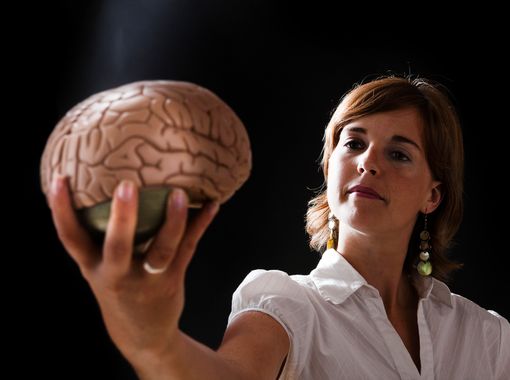Alzheimer’s, Parkinson’s, and a brain injury can change behaviour by altering brain anatomy. Now it seems coronavirus can too.
It wasn’t long after the pandemic started that we realised coronavirus targets not only the lungs but the heart, the brain and other vital organs.
The effect on the brain was particularly puzzling.
Patients would be admitted to hospital with severe depression, hallucinations and paranoia.
And for the past year, more and more people have had to cope with Long Covid with brain fog, anxiety or depression, being unable to think straight or hold on to memories, and fumbling for words.
However, these psychological changes aren’t confined to Covid.
Maura Boldrini, a neuroscientist and psychiatrist at Manhattan’s Columbia University Irving Medical Centre, notes that some Long Covid symptoms mirror those caused by various chronic brain and personality-altering conditions.
This includes other viral infections, traumatic brain injuries, and neurodegenerative diseases such as Parkinson’s, Alzheimer’s, and Huntington’s.
As Sharon Guynup, science and environmental writer in the National Geographic says, all these conditions can change how people see the world, destabilise emotions and undermine self-esteem and confidence.
What’s going on in the brain is indecipherable, but researchers increasingly believe that inflammation plays a major part.
With Covid-19, a storm of inflammatory cytokines may trigger an overwhelming immune response, one powerful enough to permanently damage or destroy brain cells resulting in a changed personality.
So, what’s happening in the brain?
Boldrini believes as nerve cells stop functioning and die, the brain shrinks and a person’s behaviour becomes more erratic.
With fewer neurons, the brain’s learning and memory functions begin to suffer.
Many viruses are already known to wreak havoc in the brain.
I remember during the HIV epidemic many friends suffering from paranoia, hallucinations, memory problems and loss of concentration.
Many of the changes seen in Long Covid are similar to those from traumatic brain injuries, concussion from a contact sport or from active military service.
Damage to the frontal lobes, behind the forehead, can impair executive functioning: organising, planning, multi-tasking.
Memory and self-awareness might slip, and patients may not be aware of what they’ve lost.
And some head injury survivors lose emotional control. The common theme among these conditions is inflammation.
So it’s not Covid itself that’s so destructive, it’s our toxic response.
It may also reduce blood flow to neurons by constricting capillaries, explaining why the virus induces strokes – by starving the brain of oxygen.

